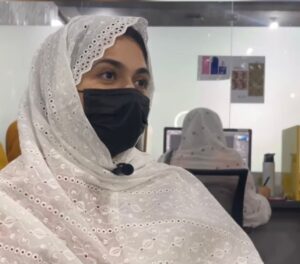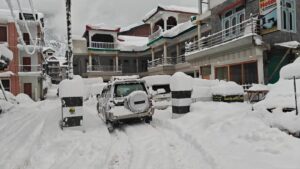PESHAWAR – Unidentified assailants shot dead senior Awami National Party (ANP) leader Maulana Khanzeb near Tehsil Khar in Bajaur on Thursday. The attack also killed one other person and injured three of Khanzeb’s companions, according to District Police Officer Waqas Rafiq.
Khanzeb, a former National Assembly candidate and head of the ANP’s Ulema Council, was campaigning for a peace march planned for 13 July. Police said the shooting occurred during this mobilisation effort.
Also Read: Who Was Mufti Munir Shakir? A Look at His Tumultuous Life and Violent End
ANP mourns another targeted killing
No group has claimed responsibility. However, assassination of Maulana Khanzeb sparked widespread condemnation from political parties and rights groups. The ANP, known for opposing extremism, has previously lost key leaders, including Bashir Bilour and Haroon Bilour, to similar attacks.
Khanzeb’s killing highlights ongoing threats to moderate voices in Khyber Pakhtunkhwa, where religious scholars and peace advocates remain frequent targets.
Also Read: Why religious scholars ban women from Mandan Park in Bannu?
Two people including Molana Khanzeb were killed & three others injured in Bajaur. He was targeted near Shandai Mor, while campaigning for Peace Jirga. Mulana Khan Zaib was associated with ANP and prominent political figure,who considered emerging voice in local politics 1️⃣ pic.twitter.com/TzA1AmvxJt
— Jawad Yousafzai (@JawadYousufxai) July 10, 2025
Scholars under attack across KP
Just days before, a bomb blast in the Urmar area of Peshawar killed religious scholar Mufti Munir Shakir and injured several others. These back-to-back killings have raised fears of renewed militancy in the tribal belt.
Observers describe the attacks as part of a pattern aimed at silencing moderate and pro-peace figures. Public anger has grown, with residents staging protests and demanding stronger action from the state.
Militants have also intensified attacks on religious sites. On Friday, a blast hit a mosque in Azam Warsak, South Waziristan, injuring four people, including Jamiat Ulema-e-Islam-Fazl’s district chief Abdullah Nadeem.
Earlier this year, a suicide bomber struck Darul Uloom Haqqania mosque in Nowshera. The explosion killed nine people, including the deputy administrator and senior Jamiat Ulema-e-Islam-Sami leader Maulana Hamidul Haq. Over 20 others were injured. No group claimed the attack. Both Pakistani and Afghan Taliban later condemned the bombing.
As violence spreads, residents and political workers are demanding urgent protection for religious and political leaders. Civil society groups warn that continued inaction could deepen insecurity in the region.












